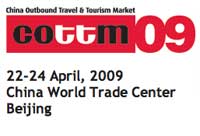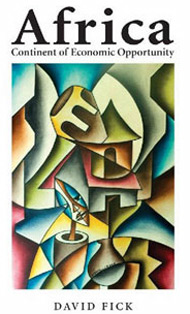|
|
|
Just Released:
New Edition of an Ecotourism Classic Ecotourism and
Sustainable Development: Who Owns
Paradise? The new edition, which took
four years to complete and involved a team of some
dozen researchers spread across all the case study
countries, marks a major rewrite of the original
book. "It is stunning how much ecotourism has
grown over the last decade," says Honey. "I
quickly found that I couldn't simply do a new
edition by revising statistics and dates.
Rather, whole new concepts, trends, and terms have
recently emerged within the field of
ecotourism." This edition covers, for
instance, the growth of 'green' certification
programs that measure environmental and social
impacts of tourism businesses and the emergence of
travelers' philanthropy as a form of development
assistance flowing from tourism businesses and
travelers to social and environmental projects in
host communities. It also examines new varieties of
ecotourism such as voluntourism (holidays that
include service projects), agritourism (which
encompasses protection of family farms, the Slow
Food Movement, and organics), and sustainable
tourism (which incorporates some of ecotourism's
principles and good practices into mainstream
tourism businesses). The new volume describes
recent ecotourism events, most importantly the
United Nations' International Year of Ecotourism in
2002 which, Honey argues, signified that ecotourism
had "evolved from a good idea in the 1970s into, by
the new millennium, a global economic tool for
poverty alleviation and environmental
protection." The most important current
development, says Honey, "is ecotourism's response
to the threat of global warming. This includes
adopting new technologies and architectural designs
that reduce dependence on fossil fuels and the
promotion of credible carbon offset programs to
mitigate the impacts of air travel by providing
funds to protect forests and support the
development of clean energy." Honey is no detached academic
or armchair travel writer. Rather she is
fully engaged in the topic, as co-founder and
Co-Director of CESD, a policy oriented research
center with offices in Washington , DC and at
Stanford University . She also served for
four years as Executive Director of The
International Ecotourism Society (TIES).
Prior to TIES, Honey observed firsthand the
emergence of ecotourism while living and working
for two decades in Tanzania and Costa Rica as
a foreign correspondent . The book, published by Island
Press and bearing the CESD logo, is the first in a
new series of CESD books. The second in the
series, Ecotourism and Conservation in the Americas
by Amanda Stonza and Dr. William Durham will be
published later in 2008 by CABI Press. Dr.
Durham, a professor of anthropology at Stanford
University, is co-founder and Co-Director of
CESD. Island Press Executive Editor
Todd Baldwin says pre-publication sales of the new
edition have been brisk and he predicts the new
edition will be as popular as its predecessor with
academics, environmentalists, development agencies,
journalists, and ordinary
travelers. Click here for a flyer
on the book or order online at
www.islandpress.org. Paper copies are $29.50
and cloth copies are $60.00 plus shipping.
For press interviews, contact Martha Honey via
email at mhoney@ecotourismcesd.org or by telephone
at 202-347-9203, ext 413. For press and academic
review copies, please contact Island Press at
202-232-7933. Contact: Whitney Cooper,
CESD Phone: +1 202-347-9203
x.414 Email:
wcooper@ecotourismcesd.org Contact: Caroline
Dobuzinskis, Island Press Phone:
+1 202-232-7933 Email:
cdobuzinskis@islandpress.org FOR IMMEDIATE
RELEASE August 5,
2008 |
||||||||||||||||


 WASHINGTON
D.C: The Center on Ecotourism and Sustainable
Development (CESD) is proud to announce the
publication of the new edition of Ecotourism and
Sustainable Development: Who Owns Paradise? by CESD
Co-Director, Dr. Martha Honey. First
published in 1999, Who Owns Paradise? has been
highly acclaimed as the most comprehensive study of
both the theory and practice of ecotourism.
In the new edition, Honey updates her original
chapter-length case studies on Costa Rica, the
Galapagos, Tanzania, Zanzibar, Kenya, and South
Africa, and adds a fascinating new chapter
&endash; the first ever analysis of ecotourism in
the United States. In the three opening
chapters, Honey examines how ecotourism emerged in
the late 1970s as a reaction to growing concerns
about the negative social, environmental, and
economic impacts of mainstream tourism. By
the early 1990s, ecotourism was said to be the
fastest growing sector of the tour ism industry,
and today, it is reportedly growing three times
faster than the industry as a whole.
WASHINGTON
D.C: The Center on Ecotourism and Sustainable
Development (CESD) is proud to announce the
publication of the new edition of Ecotourism and
Sustainable Development: Who Owns Paradise? by CESD
Co-Director, Dr. Martha Honey. First
published in 1999, Who Owns Paradise? has been
highly acclaimed as the most comprehensive study of
both the theory and practice of ecotourism.
In the new edition, Honey updates her original
chapter-length case studies on Costa Rica, the
Galapagos, Tanzania, Zanzibar, Kenya, and South
Africa, and adds a fascinating new chapter
&endash; the first ever analysis of ecotourism in
the United States. In the three opening
chapters, Honey examines how ecotourism emerged in
the late 1970s as a reaction to growing concerns
about the negative social, environmental, and
economic impacts of mainstream tourism. By
the early 1990s, ecotourism was said to be the
fastest growing sector of the tour ism industry,
and today, it is reportedly growing three times
faster than the industry as a whole.



